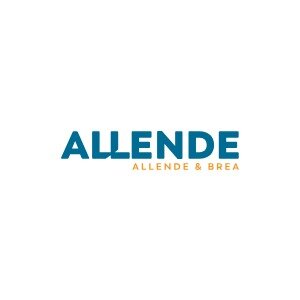Best Project Finance Lawyers in Argentina
Share your needs with us, get contacted by law firms.
Free. Takes 2 min.
Or refine your search by selecting a city:
List of the best lawyers in Argentina
About Project Finance Law in Argentina
Project finance is a specialized area of finance where the funding for large-scale projects, such as energy, infrastructure, or mining developments, is primarily secured by the project's future cash flows and assets. In Argentina, project finance is a dynamic field driven by demand for infrastructure and opportunities in sectors like renewable energy, oil and gas, transport, and telecommunications. Due to the country's evolving regulatory environment, economic challenges, and changes in investment climates, project finance transactions in Argentina require strategic planning, careful structuring, and thorough risk assessment.
Why You May Need a Lawyer
Legal counsel in project finance is essential for both local and foreign investors in Argentina. Common situations where you might require a specialized project finance lawyer include:
- Drafting and negotiating complex financing agreements
- Structuring a public-private partnership (PPP) or concession contract
- Conducting legal due diligence on potential projects or partners
- Navigating cross-border financing, exchange controls, and foreign currency regulations
- Managing regulatory compliance with Argentine laws and international standards
- Securing permits, licenses, and governmental approvals for your project
- Resolving disputes, defaults, or enforcement of security packages
Given the project's size and many stakeholders, having a lawyer is crucial to ensure that obligations are clear, risks are allocated appropriately, and the project is set up for success.
Local Laws Overview
Project finance transactions in Argentina are shaped by various local laws and regulations. Key points include:
- Banking and Financial Regulations: The Central Bank of Argentina regulates financial institutions and their activities. Foreign currency transactions, repatriation of dividends, and currency controls are carefully monitored.
- Public-Private Partnerships and Concessions: Argentina has specific laws for PPPs and concession models, such as Law No. 27,328, which sets the legal framework for PPP contracts.
- Security and Collateral: Argentine Civil and Commercial Code governs how security interests can be taken over project assets, receivables, and shares. Step-in rights and direct agreements are often structured to protect lenders.
- Permits and Authorizations: Various governmental bodies oversee permitting across sectors. For energy projects, the Secretaria de Energia plays a key role.
- Taxation: Different types of tax (VAT, income tax, withholding taxes) can affect your project's cash flows and need to be carefully analyzed from project inception.
- Foreign Investment and Exchange Regulations: Restrictions may apply to inflows and outflows of foreign capital. Compliance with these rules is crucial for project sponsors and financiers.
- Dispute Resolution: Arbitration is often used for project finance contracts, especially involving international parties, and the enforceability of arbitration awards in Argentina is generally recognized.
Frequently Asked Questions
What is project finance, and how does it differ from traditional corporate finance in Argentina?
Project finance is a technique where the financing is secured mainly by the future cash flows generated by a specific project and not by the general assets or creditworthiness of the project sponsors. This is distinct from corporate finance, which relies on the whole company’s balance sheet.
Can foreign investors participate in project finance deals in Argentina?
Yes, foreign investors can take part in project finance transactions. However, investors must comply with local regulations, especially those related to currency controls, registration of foreign direct investment, and sector-specific restrictions.
What kinds of projects are typically financed through project finance structures in Argentina?
Major infrastructure projects such as roads, ports, airports, power plants (including renewable energy), oil and gas pipelines, and telecom networks are commonly financed through project finance structures.
What are the main sources of funding for project finance transactions in Argentina?
Funding usually comes from a mix of local and international banks, multilateral agencies (such as the Inter-American Development Bank or World Bank), export credit agencies, institutional investors, and capital markets.
What are public-private partnerships (PPPs) in the Argentine context?
PPPs are collaborative agreements between the government and private sector for the development of public infrastructure or services. In Argentina, PPPs are formalized under a legal framework that specifies the rights, obligations, risk allocation, and guarantees for both parties.
How are risks typically allocated in Argentine project finance transactions?
Risks are allocated among the parties according to who is best able to manage or mitigate them. This includes construction risk, operational risk, regulatory risk, and currency/exchange risk. Contracts are carefully negotiated to reflect this allocation.
What security or collateral arrangements are commonly used?
Lenders usually require security over project assets, shares in the project company, receivables, bank accounts, and insurance proceeds. Specific structures depend on the sector and type of project.
Are there specific tax considerations for project finance in Argentina?
Yes, project companies and investors should assess all tax implications, including VAT, income tax, withholding taxes on interest or dividends, and potential tax incentives for certain sectors like renewable energy.
What types of approvals or permits are required to start a project?
The required approvals depend on the project's type and location, but typically involve obtaining environmental permits, sector-specific approvals, municipal authorizations, and sometimes congressional approval for particular agreements or guarantees.
How can disputes be resolved if they arise during the life of the project?
Dispute resolution mechanisms are established through contract. Many project finance deals in Argentina stipulate international arbitration and the choice of foreign law for certain matters. Local courts may have jurisdiction over specific issues depending on the agreement and applicable laws.
Additional Resources
If you are seeking more in-depth information or assistance related to project finance in Argentina, you may find the following resources useful:
- Ministerio de Economía de la Nación: Responsible for national economic policy, including infrastructure financing.
- Central Bank of Argentina (BCRA): Regulates banking, foreign exchange, and financial transactions.
- Agencia de Administración de Bienes del Estado (AABE): Manages public assets often used in PPP projects.
- Camara Argentina de la Construcción: Industry chamber with resources on construction and infrastructure finance.
- Argentine Association of Project Finance Professionals: Offers information and contacts in the industry.
- International Finance Corporation (IFC) and Inter-American Development Bank (IDB): Both active in financing and providing project finance expertise in Argentina.
- Specialized legal and consulting firms: Many firms publish guides, newsletters, and host seminars relating to project finance law in Argentina.
Next Steps
If you are considering participating in a project finance transaction or developing a major project in Argentina, it is advisable to consult with an experienced local lawyer specializing in this field. Collect relevant project information, identify your objectives, and be ready to discuss financing sources and timelines. A lawyer can help you navigate legal and regulatory complexities, advise on risk allocation, and negotiate contracts that protect your interests.
Reach out to reputable law firms or professional associations specializing in infrastructure and project finance. Prepare your questions, request an initial consultation, and ensure you understand the legal landscape before making any commitments. Taking these proactive steps will greatly increase your chances of a successful, legally compliant, and financially sound project in Argentina.
Lawzana helps you find the best lawyers and law firms in Argentina through a curated and pre-screened list of qualified legal professionals. Our platform offers rankings and detailed profiles of attorneys and law firms, allowing you to compare based on practice areas, including Project Finance, experience, and client feedback.
Each profile includes a description of the firm's areas of practice, client reviews, team members and partners, year of establishment, spoken languages, office locations, contact information, social media presence, and any published articles or resources. Most firms on our platform speak English and are experienced in both local and international legal matters.
Get a quote from top-rated law firms in Argentina — quickly, securely, and without unnecessary hassle.
Disclaimer:
The information provided on this page is for general informational purposes only and does not constitute legal advice. While we strive to ensure the accuracy and relevance of the content, legal information may change over time, and interpretations of the law can vary. You should always consult with a qualified legal professional for advice specific to your situation.
We disclaim all liability for actions taken or not taken based on the content of this page. If you believe any information is incorrect or outdated, please contact us, and we will review and update it where appropriate.
Browse project finance law firms by city in Argentina
Refine your search by selecting a city.















